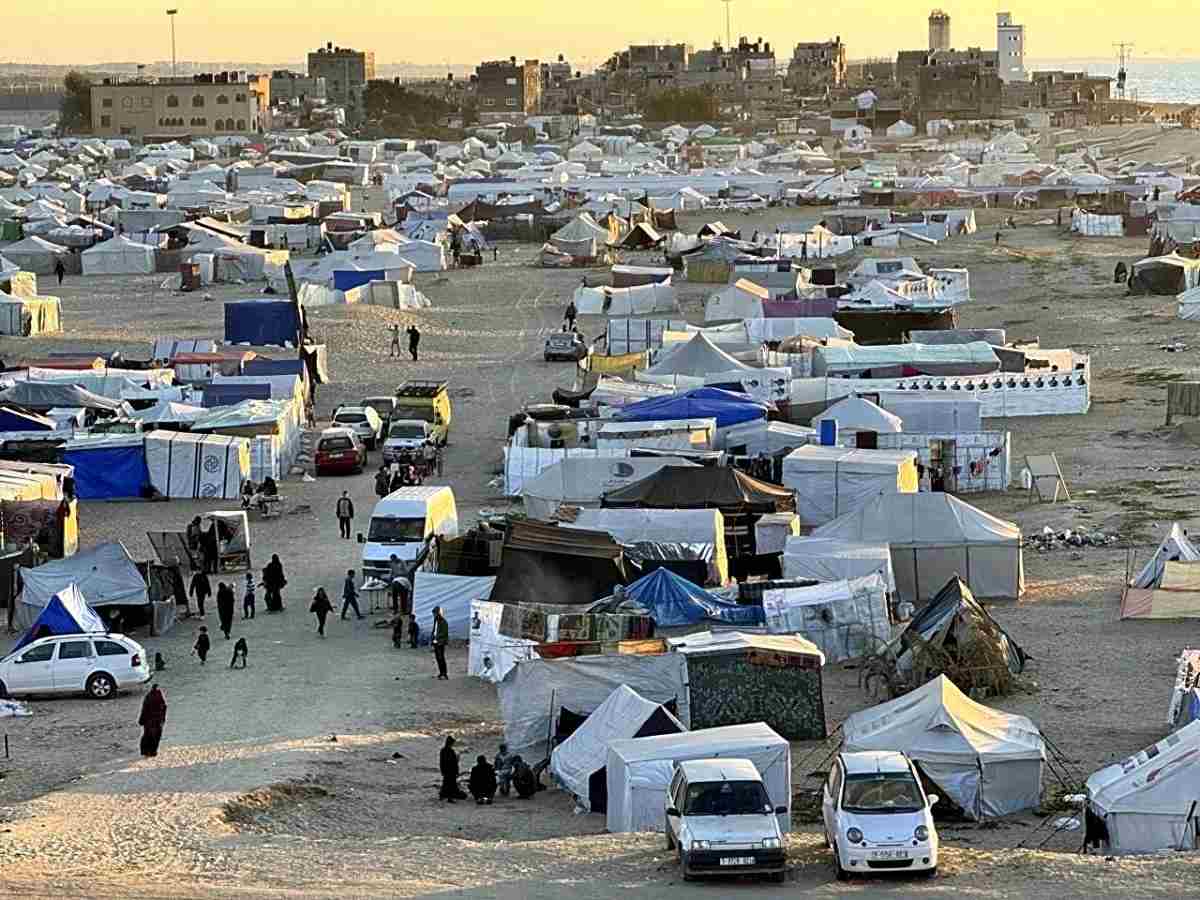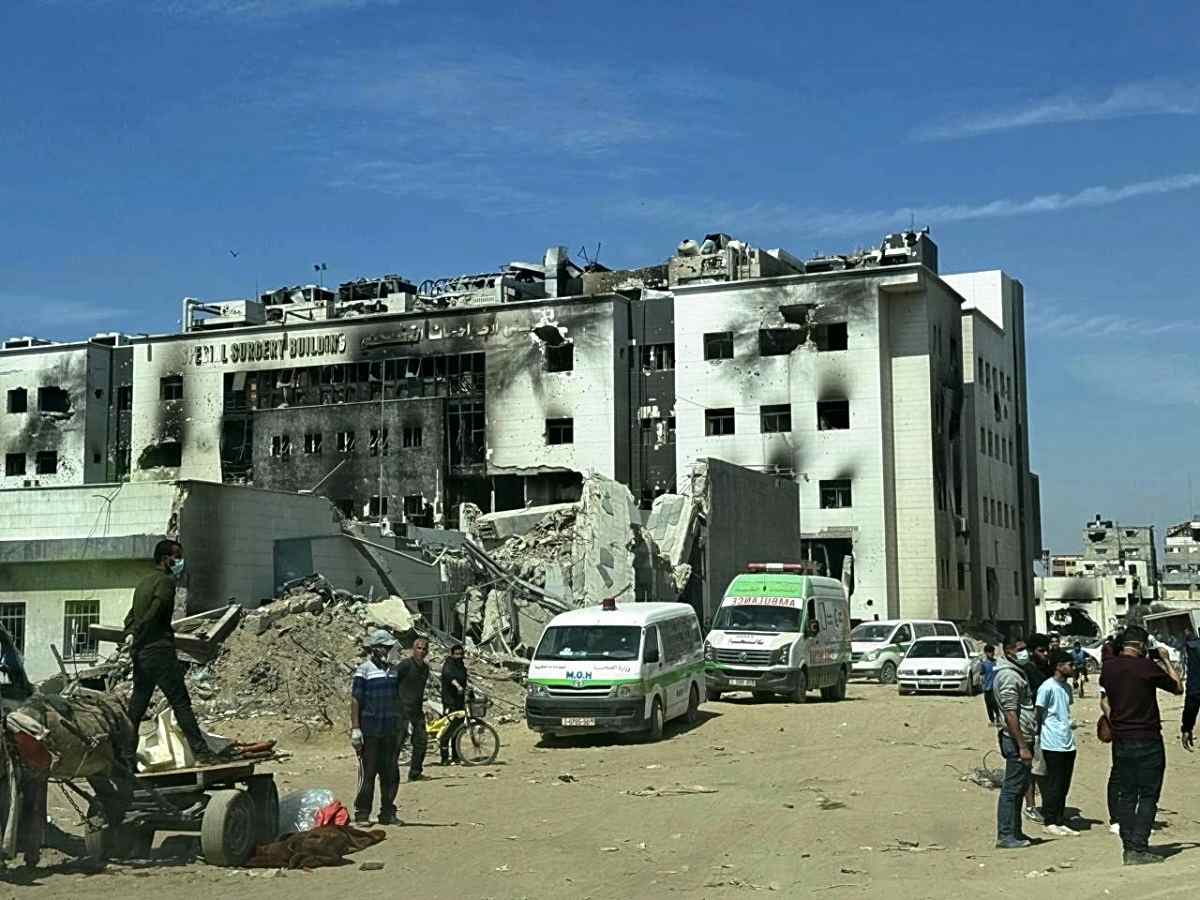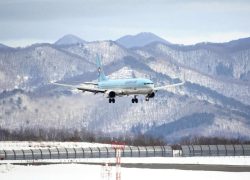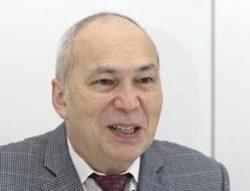UNRWA Director Describes Catastrophic Destruction in Gaza; Says Relief Trucks Robbed, ‘People’s Hearts Destroyed’

Tents spread out in Rafah in the southernmost part of Gaza Strip, where displaced people are gathered, on March 25.
6:00 JST, April 24, 2024
Akihiro Seita, 63, is the director of health for the U.N. Relief and Works Agency for Palestine Refugees in the Near East (UNRWA). He spent about three weeks in Gaza from March 20 to April 10.
On April 8, Seita entered northern Gaza in an U.N. convoy through an Israeli military checkpoint. More than 1,000 young people were waiting, their faces blank. As soon as they spotted a truck in the convoy, they jumped on its back and began taking things.
The truck was carrying medicine, not food, so only some of the cargo was stolen. Seita said he saw the same kind of incident in Rafah as well.
Before the fighting, people in Gaza were calm and the city was safe. “Not only the buildings, but the hearts of the people have also collapsed,” said Seita, a doctor who specializes in infectious disease. He worked with the World Health Organization for 15 years before joining UNRWA in 2010.
The Israeli military has divided Gaza into north and south and does not allow trucks carrying residents or aid supplies to come and go freely. Following accusations that some UNRWA employees were involved in Hamas’ October attack in Israel, the Israeli authorities have not allowed UNRWA staff to enter the north alone.
Seita therefore entered Gaza with staff from another U.N. agency.
The Salah al-Din Road, the highway running north-south through Gaza, used to be a paved three-lane road each way. Now, however, it a bumpy, dusty road. Buildings on both sides looked like crumbling rags.
A local U.N. official from Gaza City could not hide his anger, asking whether this level of destruction was necessary. Another U.N. official, who has been engaged in humanitarian assistance, said he had never seen a city destroyed to such an extent so quickly.

Al-Shifa Hospital in Gaza City on April 8. The hospital has been destroyed by Israeli forces and is no longer functioning.
At Al-Shifa Hospital, the largest hospital in Gaza, it was impossible to tell where the entrance or wards were. Militants took up a position there and it was then heavily attacked by Israeli forces in March and April.
“It’s no longer a hospital,” Seita said.
The only UNRWA health center open in Gaza City does not have enough doctors, medical equipment or medicine to treat the seriously injured. Seita delivered medicines to the center for hepatitis, which is widespread in the city, but not in sufficient quantities, he said.
An emaciated staff member Seita knows told him it was hard to get food. Prices in the city had skyrocketed, with an egg costing 10 shekels (about ¥400) and a kilogram of tomatoes 100 shekels (¥4,000).
During his stay in Gaza, Seita entered the northern part of the Strip from his base in Rafah, delivering medical supplies and surveying the situation. Back in UNRWA’s base in Jordan, Seita called for the implementation of a ceasefire “as soon as possible.”
“We must keep supplying food and medicine and bring calm to the lives of the Gazan people,” Seita said.
Top Articles in World
-

China Confirmed to Be Operating Drilling Vessel Near Japan-China Median Line
-

China Eyes Rare Earth Foothold in Malaysia to Maintain Dominance, Counter Japan, U.S.
-

Japan, Qatar Ministers Agree on Need for Stable Energy Supplies; Motegi, Qatari Prime Minister Al-Thani Affirm Commitment to Cooperation
-

North Korea Possibly Launches Ballistic Missile
-

10 Universities in Japan, South Korea, Mongolia to Establish Academic Community to Promote ICC Activities, Rule of Law
JN ACCESS RANKING
-

Univ. in Japan, Tokyo-Based Startup to Develop Satellite for Disaster Prevention Measures, Bears
-

JAL, ANA Cancel Flights During 3-day Holiday Weekend due to Blizzard
-

China Confirmed to Be Operating Drilling Vessel Near Japan-China Median Line
-

China Eyes Rare Earth Foothold in Malaysia to Maintain Dominance, Counter Japan, U.S.
-

M6.2 Earthquake Hits Japan’s Tottori, Shimane Prefectures; No Tsunami Threat (Update 4)
























